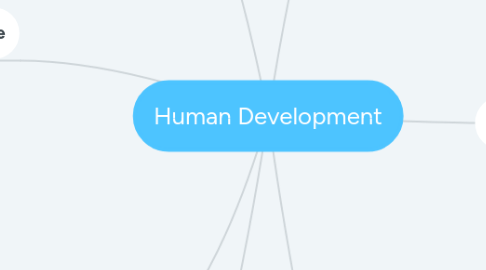
1. Behavioral
1.1. Pavlov's theory of classical conditioning.
1.1.1. Learning associations between neutral events and natrually occuring stimuls -response reflexes
1.2. Pavlov's theory of operant conditioning
1.2.1. The effect that rewards and punishments have on behavior
1.2.1.1. Insentives like a sticker chart for potty training as a reward.
1.2.1.2. Punishments like getting your toys removed because you were throwing them at your little sister.
2. Cognitive
2.1. Piaget believed that infants possess mental structures called schemas, which assisted them in categorizing thoughts.
2.2. Piaget Cognitive Development Theory consisted of four periods: sensorimotor,preoperational,concrete operational and formal operational.
2.2.1. Sensorimotor
2.2.1.1. Begins between ages 0-2 years old, based on the basis of cognition.
2.2.2. Preoperational
2.2.2.1. Begins between ages of 2-6, defined by rudimentary language and making sense of the world.
2.2.2.1.1. Amira is in this stage. She is making sense of her microsystem, her family, through names and rudimentary adjectives.
2.2.3. Concrete Operational
2.2.3.1. Begins between ages 7-12 defined by making connections between things and events in addition to logic and problem solving.
2.2.4. Formal operational
2.2.4.1. Being between ages of 12- Adulthood defined by the use of hindsight and future thinking to make connections.
2.3. Vygotsky's Zone of Proximal Development
2.3.1. Concept that children's cognitive growth develops through participation in activities slightly beyond their competence with the help of adults or older children.
2.3.1.1. Scaffolding- The progressive structuring of tasks by parents or otherwise so that the level of take difficulty sis appropriate.
2.3.1.1.1. An example from my childhood, is learning how to play the recorder and being eased into playing the clarinet as they have similar fingerings.
3. Systems Views
3.1. The ecological systems theory holds that we encounter different environments throughout our lifespan that may influence our behavior in varying degrees.
3.1.1. Microsystem
3.1.1.1. Direct Environment
3.1.1.1.1. My Microsystem-Cole, my immediate family, my professors
3.1.2. Mesosystem
3.1.2.1. Interactions between those in your Microsystem and their microsystem
3.1.2.1.1. My parents relationship, Cole's relationship with his parents
3.1.3. Exosystem
3.1.3.1. Indirect Environment
3.1.3.1.1. Neighbors, facebook, instagram
3.1.4. Macrosystem
3.1.4.1. Social and Cultural Values
3.1.4.1.1. Empathy, hard-work
3.1.5. Chronosystem
3.1.5.1. Changes over time/significant life events
3.1.5.1.1. Going off to college, Aurora Theater Shooting, Hospitalizations
4. Attachment Theory
4.1. Secure Attachemnent
4.1.1. This is a secure and strong emotional bond between parent and child. This is caused by a responsive parent.
4.2. Avoidant Attachment
4.2.1. This is when a child has an uncaring attitude towards their parent.
4.3. Insecure Attachment
4.3.1. This is described as a weak emotional bond between parent and child. This is caused by inconsistent or unresponsive parenting.
4.3.2. Disorganized/ Disoriented Attachment
4.3.2.1. This is a form of insecure attchment that causes a child to feel confused toward their parent.
4.3.3. Resistant attachment
4.3.3.1. Insecure attachment defined as a complete avoidance of the parent.
5. Biological
5.1. Chomsky theory of Language acquisition proposed that children are biologically programmed to learn language because they are born with a cognitive structure call a language acquisition device.
6. Psycho-dynamic
6.1. Kohlberg's theory of moral development
6.1.1. Statge 1: Obedience and Punishment
6.1.1.1. The assumption that powerful authorities have a fixed set of rules that one must always obey
6.1.2. Stage 2: Individualism and Exchange
6.1.2.1. The understanding that right and wrong is not handed down by authorities
6.1.3. Stage 3 : Good interpersonal relationships
6.1.3.1. Emerging teens see morality as simple deals. They believe that people should live up to the expectations of the family and community and behave in 'good' ways.
6.1.4. Stage 4: Maintaining Social Order
6.1.4.1. Emphasis on obeying laws, respecting authority and performing one's duties so that the social order is maintained.
6.1.5. Stage 5: Social Contract and Individual Rights
6.1.5.1. Begin to ask "What makes for a good society?". Considering the rights and values that a society should uphold.
6.1.6. Stage 6: Univeral Principles
6.1.6.1. We define the principles by which we achieve justice
6.2. Erikson's Stages of Psycho-social Development
6.2.1. Trust vs Mistrust
6.2.1.1. Infant-18 months
6.2.2. Autonomy vs Shame/Doubt
6.2.2.1. 18 months-3 years
6.2.3. Initiative vs Guilt
6.2.3.1. 3-5 years
6.2.4. Industry vs Inferiority
6.2.4.1. 5-13 years
6.2.5. Identity vs Confusion
6.2.5.1. 13-21
6.2.5.1.1. Kiana is in this stage as she is trying to figure out who she is, in reference the the world.
6.2.6. Intimacy vs Isolation
6.2.6.1. 21-39 years
6.2.6.1.1. Cultivating intimacy and relationships is the main goal of this stage, the stage that I am currently in
6.2.7. Generativity vs Stagnation
6.2.7.1. 40-65
6.2.8. Intergrity vs Despair
6.2.8.1. 65 and older
7. Parenting Styles
7.1. Authorative
7.1.1. This parenting style is a relationship between parent and child were decisions are made by both with compromise. The child's thoughts and feelings are listened to and respected.
7.1.1.1. The older I get the more my parents parenting style becomes authoritative instead of Authoritarian.
7.2. Authoritarian
7.2.1. This parenting style is a relationship between parent and child were the parent has complete control over decision. It is their way or the highway.
7.2.1.1. When my parents had this parenting style there was a definite gap between mutual respect.
7.3. Permissive
7.3.1. This parenting style is more of friend relationship with child. Where the parent is more lenient in decisions making as they want to maintain a friendly relationship with their child.
7.4. Uninvolved
7.4.1. This parenting style is often the cause of neglect. Where the parent is uninvolved in the child's life and uninterested.
